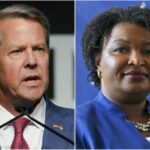Elon University Polls: Tracking the Political Landscape of North Carolina
Key Findings from Recent Elon University Polls
The most recent Elon University polls have revealed significant insights into the political landscape of North Carolina. One key finding indicates a shift in voter preferences towards candidates who prioritize healthcare and economic recovery. This trend suggests a growing emphasis on issues directly impacting citizens’ daily lives.
Additionally, approval ratings for state officials have fluctuated, with notable changes observed in response to their handling of the ongoing COVID-19 pandemic. These fluctuations underscore the importance of crisis management in shaping public perception and support for elected leaders.
Trends in North Carolina Voter Preferences
North Carolina voter preferences have shown an interesting shift in recent months, with a notable increase in support for candidates who prioritize healthcare and education reforms. In contrast, there has been a slight decrease in enthusiasm for candidates focusing primarily on economic policies.
Moreover, data suggests that younger voters in North Carolina are leaning towards progressive candidates who advocate for social justice issues, while older voters tend to favor more traditional and conservative platforms. This generational divide in voter preferences highlights the importance of understanding and catering to the diverse perspectives within the electorate.
Analysis of Approval Ratings for State Officials
In the latest surveys conducted by Elon University, approval ratings for state officials in North Carolina have shown interesting patterns. Governor Roy Cooper’s approval rating remains steady at around 50%, reflecting a relatively stable public perception of his leadership during challenging times. On the other hand, Attorney General Josh Stein’s approval rating has seen a slight decline, possibly due to recent controversies regarding certain policy decisions.
It is evident from the data that public opinion towards state officials is nuanced and can fluctuate based on various factors. Understanding these approval ratings is crucial for policymakers to gauge public sentiment and adapt their strategies accordingly. As we delve deeper into the analysis of approval ratings for state officials, it becomes clear that these ratings are dynamic and can have significant implications for future electoral outcomes.
Impact of COVID-19 on Political Attitudes in North Carolina
The impact of COVID-19 on political attitudes in North Carolina has been substantial. As the pandemic unfolded, it not only affected public health but also influenced how individuals perceive their state officials and government’s response to the crisis. Many North Carolinians have scrutinized the decisions made by leaders and expressed varying levels of confidence in their ability to navigate these unprecedented challenges.
Furthermore, the economic ramifications of the pandemic have also played a significant role in shaping political attitudes in the state. Concerns about job security, access to healthcare, and overall financial stability have heightened individuals’ scrutiny of policymakers and their proposed solutions. The way in which elected officials address these economic concerns will likely have lasting effects on voter sentiment and future electoral outcomes in North Carolina.
Comparison of Public Opinion on Key Issues
The recent Elon University polls shed light on the divergent viewpoints held by North Carolina residents on key issues. When it comes to healthcare, the majority of respondents expressed concerns about access and affordability, with a notable emphasis on the importance of Medicaid expansion. Conversely, opinions on gun control exhibited a notable split, with some advocating for stricter regulations while others emphasized the preservation of Second Amendment rights.
Education emerged as another divisive topic, with varying perspectives on school funding, teacher pay, and school choice initiatives. While some advocated for increased investment in public schools, others supported expanding school voucher programs. The data suggests that these key issues are likely to shape political discourse and decision-making leading up to the upcoming elections in North Carolina.
Insights into Voter Turnout and Engagement
Voter turnout and engagement have been focal points of political discussions in North Carolina. As the state gears up for upcoming elections, understanding the factors that influence voter participation is essential. Recent data suggests that voter turnout tends to vary across different demographic groups, with age, education level, and socioeconomic status playing critical roles in shaping voting behavior.
Moreover, initiatives aimed at increasing voter engagement, such as voter registration drives and early voting options, have shown promising results in boosting overall participation rates. The accessibility of polling locations and efforts to educate the public on the voting process also contribute significantly to enhancing voter turnout. Despite these positive steps, challenges such as apathy towards the political process and disenfranchisement among certain communities continue to impact voter engagement in North Carolina.
Exploring Demographic Differences in Political Beliefs
Demographic factors play a significant role in shaping political beliefs among individuals in North Carolina. Age, education level, income, and race are key influencers in determining one’s political outlook. Recent polls have shown that younger voters tend to lean more towards progressive policies, while older voters tend to be more conservative in their viewpoints.
Moreover, education level also plays a crucial role in shaping political beliefs, with higher levels of education often correlating with more liberal stances on various issues. Income disparities can also influence political beliefs, with individuals from lower-income brackets sometimes expressing different views compared to those from higher income brackets. Race is another important demographic factor, with diverse communities often espousing distinctive political ideologies based on their unique experiences and perspectives.
Influence of Social Media on Political Discourse
In the realm of political discourse, social media has emerged as a powerful tool that shapes public opinion and influences political narratives. With the ability to reach vast audiences in real-time, platforms like Twitter, Facebook, and Instagram have transformed the way individuals engage with political content and interact with one another online. This instantaneous and far-reaching nature of social media has blurred the lines between traditional news sources and user-generated content, often leading to the rapid spread of information, both accurate and misleading.
Moreover, the rise of echo chambers and filter bubbles on social media platforms has contributed to the polarization of political discourse, as individuals are more likely to be exposed to viewpoints that align with their existing beliefs. This phenomenon can reinforce ideological divides and hinder constructive dialogue between individuals with differing perspectives. Additionally, the algorithm-driven nature of social media feeds can further perpetuate this trend by continuously reinforcing preconceived notions and limiting exposure to diverse viewpoints.
Perceptions of Political Parties in North Carolina
In North Carolina, perceptions of political parties play a significant role in shaping voter attitudes and decisions. The Republican Party is often viewed as emphasizing traditional values, fiscal responsibility, and a strong national defense. On the other hand, the Democratic Party is commonly associated with advocating for social justice, equality, and progressive policies.
These perceptions are not fixed and can vary among different demographic groups and regions in North Carolina. Factors such as age, education level, income, and urban or rural residence can influence how individuals perceive the political parties in the state. Understanding these perceptions is crucial for political parties to effectively communicate their platforms and engage with voters in North Carolina.
Future Implications for North Carolina Elections
As we look ahead to future elections in North Carolina, it is evident that the state’s political landscape is continuously evolving. With shifting demographics and changing voter preferences, candidates and parties will need to adapt their strategies to resonate with the electorate. The impact of recent events, such as the COVID-19 pandemic and social justice movements, will likely shape the priorities of voters and influence their decision-making at the polls.
Moreover, the role of technology and social media in political discourse is expected to become even more pronounced in future elections. Candidates will need to leverage these platforms effectively to reach and engage with a diverse set of voters. Understanding the demographic differences in political beliefs and harnessing this knowledge to tailor messaging will be crucial in securing voter support. As we navigate these changing dynamics, it will be imperative for political actors to stay attuned to the pulse of the electorate and adapt their campaign strategies accordingly.
- University of Massachusetts Amherst Polls: Analyzing Voter Behavior in Massachusetts - January 5, 2025
- Polling Insights from University of Massachusetts Lowell: A Close Look at Voter Shifts - January 5, 2025
- University of New Hampshire Polls: Analyzing Key Presidential Primary Data - January 5, 2025









